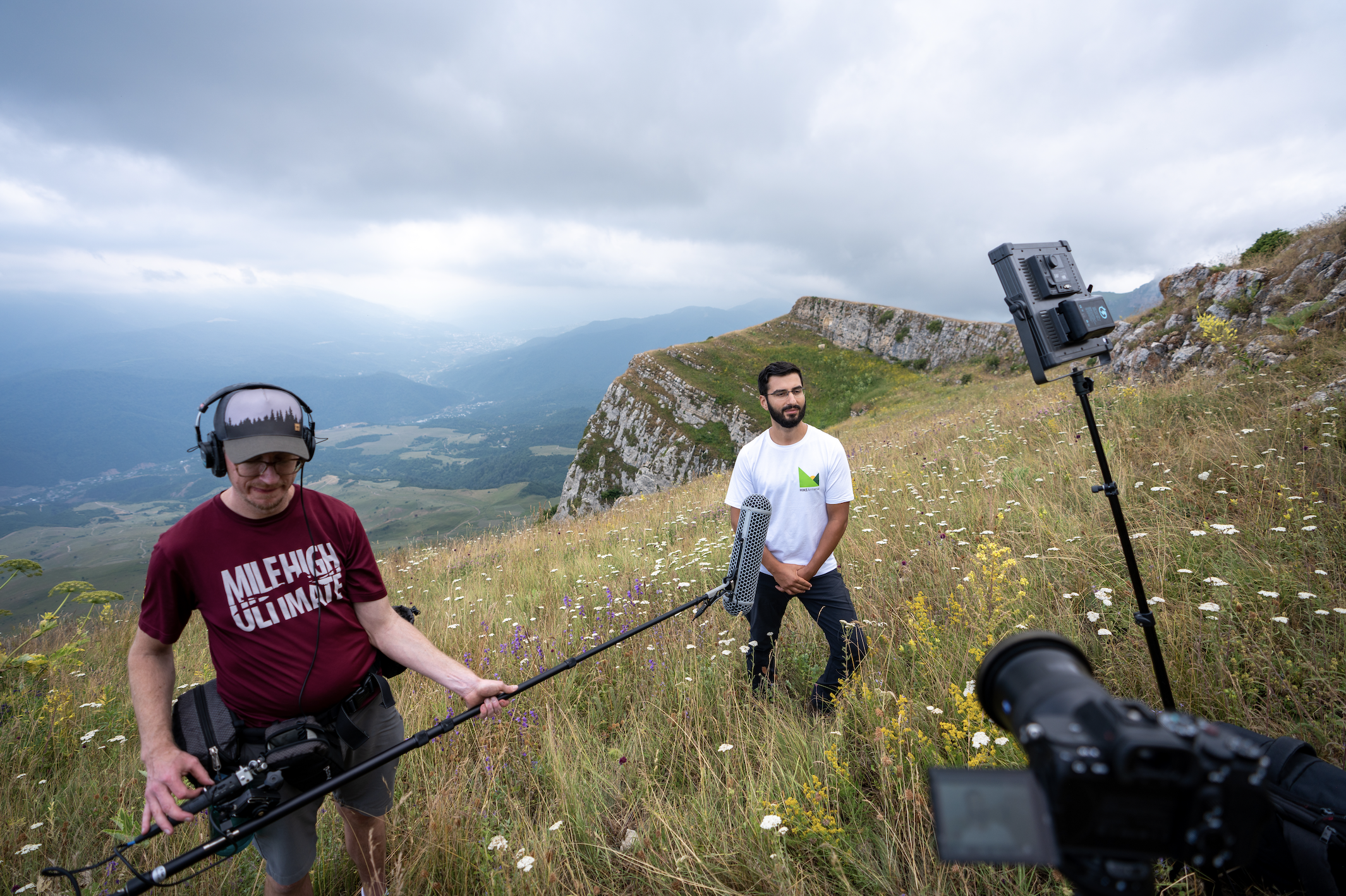It typically takes 6-8 hours to hike 14 miles. The exact time may vary based on pace and terrain difficulty.
Embarking on a 14-mile hiking adventure offers both physical challenges and breathtaking scenery. Whether traversing rugged mountains, winding through lush forests, or trekking along coastal trails, the journey promises an enriching experience in nature. Hiking 14 miles allows one to immerse in the surroundings, embrace the solitude or camaraderie of the trail, and push physical boundaries.
From the thrill of conquering steep ascents to the serenity of panoramic views at the summit, each step unveils a new facet of the landscape. So gear up, pack essentials, and set out for a memorable 14-mile hike filled with exploration and discovery.

The Importance Of Planning
Thinking of hiking 14 miles? It’s essential to plan your trip carefully. Considering factors like terrain, weather, and your physical fitness is crucial. Planning helps you gauge the time needed and prepare adequately, making for a safer and more enjoyable hike.
The Importance of Planning Planning is crucial before embarking on a 14-mile hike for a safe and enjoyable experience. Choosing the Right Route entails considering terrain difficulty, weather conditions, and waypoints. Considering Your Fitness Level is essential to prevent exhaustion and injuries during the hike. Hiking 14 miles requires adequate preparation to ensure a smooth journey. Find a suitable trail, equipped with signposts and restoration points. Take into account your stamina and physical endurance to avoid overexertion. Stay hydrated and maintain a steady pace throughout the hike. By assessing your capabilities and selecting an appropriate trail, you can enhance your hiking experience and reach the finish line confidently.
Credit: www.facebook.com
Factors Affecting Hiking Time
Terrain And Elevation
The type of terrain and the changes in elevation significantly influence the time it takes to hike 14 miles.
Weather Conditions
Weather conditions such as rain, wind, or extreme temperatures can slow down your hiking pace.
When hiking 14 miles, be mindful of these factors as they can affect your overall hiking experience.
Average Hiking Speeds
When planning a 14-mile hike, it’s essential to estimate the time required, which heavily relies on your average hiking speed. The terrain, weather, and individual fitness levels play a significant role in determining the speed at which you can cover the distance.
On Flat Terrain
On flat terrain, hikers typically maintain an average speed of 2.5 to 3 miles per hour. This means covering 14 miles would take approximately 5 to 6 hours. However, factors such as breaks, photo stops, and the overall pace of the group can influence the time taken.
On Uphill Terrain
When tackling uphill terrain, the pace naturally slows down. Hikers can expect to travel at an average speed of 1.5 to 2 miles per hour. With the incline, covering 14 miles on uphill terrain may take closer to 7 to 9 hours.

Credit: bearfoottheory.com
Tips For Efficient Hiking
Embarking on a 14-mile hike can be an exciting adventure, allowing you to soak in the beauty of nature as you challenge yourself physically. However, it’s important to approach such hikes with careful planning and efficient hiking strategies. In this section, we will discuss some tips that will help you make the most of your hike and ensure a safe and enjoyable experience.
Pacing Yourself
One of the key factors in completing a 14-mile hike is pacing yourself. It’s crucial to find a comfortable rhythm that allows you to maintain a steady pace without exhausting yourself too early on. Pushing too hard at the beginning can lead to burnout, making the remainder of the hike much more challenging.
Start by setting a realistic goal for each hour of hiking. Consider the difficulty level of the terrain and the total distance you need to cover. Aim to maintain a consistent speed that allows you to reach your goal without feeling overwhelmed or strained.
Remember to listen to your body. Take short breaks when needed, but try to keep them brief to avoid losing momentum. Hydration and proper nutrition are also essential, so make sure to drink water and eat nutritious, energy-packed snacks regularly to fuel your body.
Packing Light And Smart
When it comes to long hikes like a 14-mile trek, packing light is essential. The weight of your backpack can significantly impact your endurance and overall enjoyment of the hike. Prioritize the essentials and leave behind any non-essential or bulky items.
Here’s a list of the must-have items for a 14-mile hike:
- Proper footwear: Invest in sturdy and comfortable hiking boots or shoes to keep your feet well-supported and protected.
- Navigation tools: Carry a map, compass, or GPS device to stay on track and navigate through unfamiliar trails.
- Water: Carry an adequate supply of water to stay hydrated throughout the hike. Consider a hydration pack or water bottle that is easy to access.
- Food: Pack lightweight, high-energy snacks such as trail mix, energy bars, and fresh fruits to keep your energy levels up.
- Sun protection: Don’t forget to bring sunscreen, a hat, and sunglasses to shield yourself from harmful UV rays.
- First aid kit: Be prepared for any minor injuries with a basic first aid kit that includes bandages, pain relievers, and antiseptic wipes.
- Extra clothing layers: Depending on the trail’s conditions and climate, pack additional layers of clothing to protect yourself from changing weather.
Remember, as you pack your backpack, distribute the weight evenly to maintain balance and prevent strain on your back and shoulders.
Key Considerations For Long-distance Hiking
Embarking on a long-distance hike, such as covering 14 miles, requires careful planning and preparation. Ensuring you have the right supplies, knowledge, and mindset is essential for a successful and enjoyable hiking experience. In this section, we will explore two crucial aspects of long-distance hiking: Hydration and Nutrition and Safety Precautions.
Hydration And Nutrition
Proper hydration and nutrition are paramount when it comes to tackling a 14-mile hike. Staying hydrated throughout the journey is vital for maintaining energy levels and preventing dehydration. Remember to pack sufficient water and consider using hydration packs or water bottles with built-in filters for convenience.
Tip: It is recommended to consume at least 0.5-1 liter of water for every hour of hiking.
In addition to water, fueling your body with the right nutrition is crucial. Packing lightweight, nutrient-dense snacks such as energy bars, nuts, and dried fruits can provide the energy boost you need to conquer the miles ahead. Incorporating a balance of carbohydrates, proteins, and healthy fats will help sustain energy levels and prevent fatigue.
Tip: Plan your meals and snacks ahead of time, considering their weight and nutritional value. Opt for lightweight, calorie-dense options.
Safety Precautions
While embarking on a long-distance hike, it’s essential to prioritize safety to ensure a smooth and secure journey. Here are some safety precautions to keep in mind:
1. Research the Trail: Familiarize yourself with the trail’s difficulty level, terrain, and any potential hazards or closures. Consult reliable sources, such as park websites or experienced hikers, for up-to-date information.
2. Communicate your Plans: Inform a trusted friend or family member about your hiking plans, including the expected duration and route. This provides an extra layer of safety in case of unexpected situations.
3. Weather Check: Check the weather forecast before your hike and come prepared with appropriate clothing and gear. Sudden changes in weather can affect visibility and trail conditions.
4. First Aid Kit: Carry a well-stocked first aid kit, including essentials such as bandages, antiseptic ointment, and pain relievers. Be prepared for minor injuries or emergencies that may occur on the trail.
5. Navigation: Carry a map, compass, or GPS device to help you navigate your way through the trail. Familiarize yourself with the route before setting off and pay attention to trail markers or signs.
6. Leave No Trace: Practice ethical hiking by leaving no trace of your presence. Pack out all garbage, dispose of waste properly, and respect wildlife and natural habitats.
7. Pace Yourself: Avoid pushing your limits and pace yourself throughout the hike. Listen to your body, take breaks when necessary, and refuel to prevent exhaustion and injury.
By incorporating these safety precautions into your long-distance hiking strategies, you can ensure a safer and more enjoyable journey.

Credit: www.bigsurcalifornia.org
Frequently Asked Questions Of How Long Does It Take To Hike 14 Miles
How Long Does It Take To Hike 14 Miles On Average?
On average, it takes around 5 to 7 hours to hike 14 miles, depending on factors like terrain, elevation gain, and individual fitness level. However, this estimation can vary greatly based on each hiker’s pace, rest breaks, and overall hiking experience.
Is It Possible To Hike 14 Miles In A Day?
Yes, it is possible to hike 14 miles in a day. However, it requires a good level of fitness and experience. Hiking long distances in a single day requires proper planning, pacing, and endurance. It’s important to listen to your body, stay hydrated, and take breaks as needed throughout the hike.
How Can I Prepare Myself For A 14-mile Hike?
To prepare for a 14-mile hike, it’s important to build up your endurance and fitness level gradually. Start by gradually increasing the distance and difficulty of your hikes, incorporating regular cardiovascular and strength training exercises into your routine. Additionally, pack adequate water, snacks, necessary gear, and your hiking essentials.
Planning and researching the trail beforehand is also crucial for a successful hike.
Conclusion
The time it takes to hike 14 miles varies based on individual fitness levels and terrain. Factors such as elevation gain, weather conditions, and rest breaks influence the duration. It’s essential to plan ahead, stay hydrated, and pace oneself for a fulfilling and enjoyable hiking experience.
Happy trails!